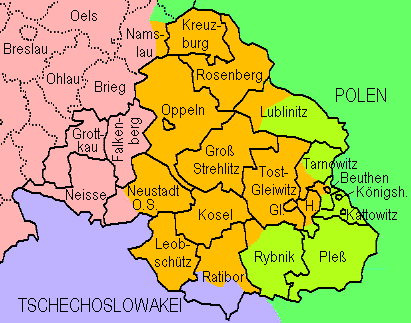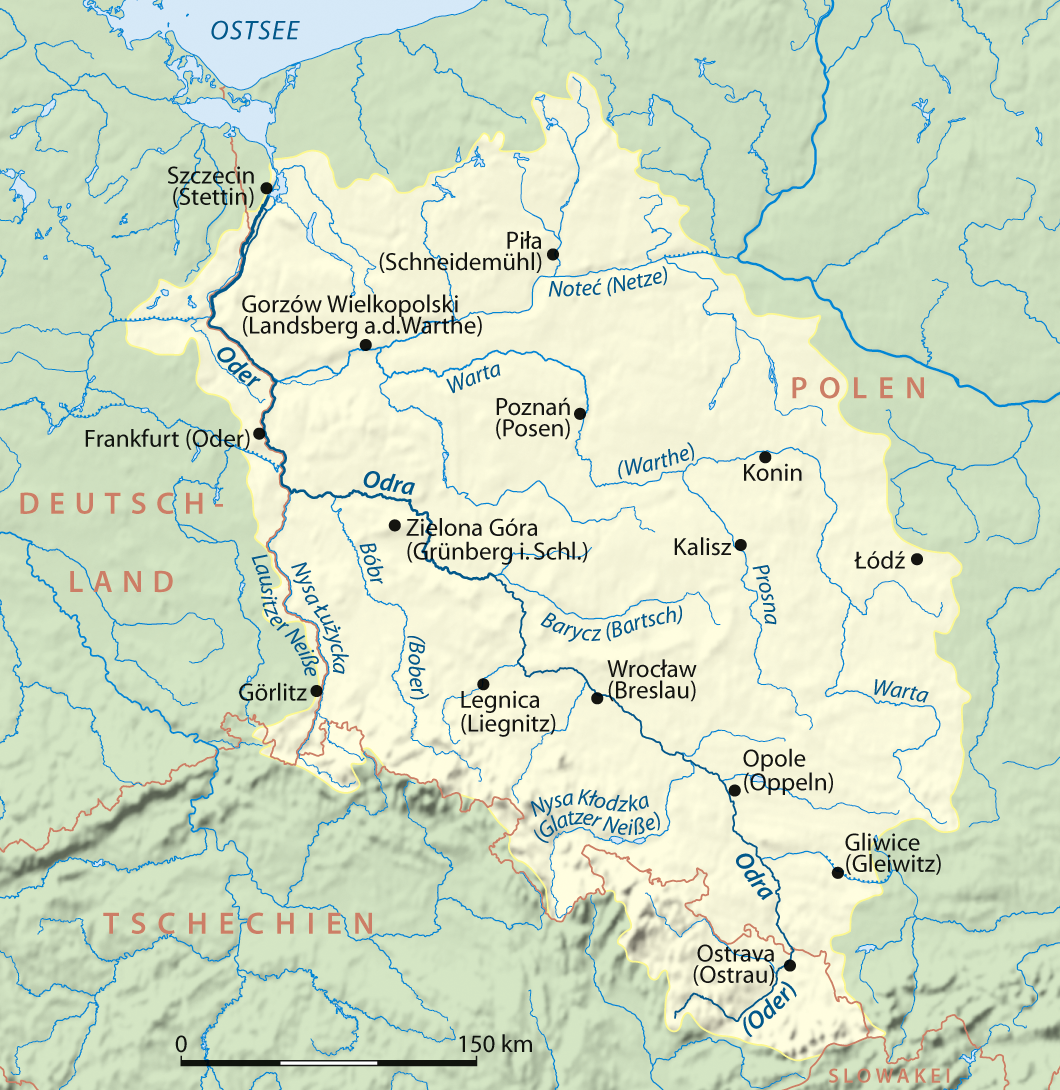|
Battle Of Annaberg
The Battle of (the) Annaberg () was the biggest battle of the Silesian Uprisings. The battle, which took place between May 21–26, 1921, was fought at the Annaberg (Polish: ''Góra Św. Anny''), a strategic hill near the village of Annaberg O.S. (''Góra Świętej Anny''), located southeast of Oppeln (Opole) in Upper Silesia, Weimar Germany. After the hill had been captured by irregular Polish-Silesian units in the Third Silesian Uprising, German Freikorps pushed the Polish forces back. The final border was determined by political and diplomatic efforts. Prelude By the Treaty of Versailles, the German Reichswehr was limited to a strength of 100,000. Several independent paramilitary Freikorps units were formed from the remnants of the German Imperial Army. The German Freikorps units often did not obey orders from the official government, but the German government assisted in transportation and supplies.Citino, p. 245 Freikorps units fought against the communist group ... [...More Info...] [...Related Items...] OR: [Wikipedia] [Google] [Baidu] |
Silesian Uprisings
The Silesian Uprisings (; ; ) were a series of three uprisings from August 1919 to July 1921 in Upper Silesia, which was part of the Weimar Republic at the time. Ethnic Polish and Polish-Silesian insurrectionists, seeking to have the area transferred to the newly founded Polish Republic, fought German police and paramilitary forces which sought to keep the area part of the new German state founded after World War I and the subsequent revolutions in Germany. Following the conflict, the area was divided between the two countries. The rebellions have subsequently been commemorated in modern Poland as an example of Polish nationalism. Despite central government involvement in the conflict, Polish historiography renders the events as uprisings reflecting the will of ordinary Upper Silesians rather than a war. In total, several thousand people may have died violently in the militant clashes in Upper Silesia between 1919 and 1921. About four fifths of the victims were killed during th ... [...More Info...] [...Related Items...] OR: [Wikipedia] [Google] [Baidu] |
Germany
Germany, officially the Federal Republic of Germany, is a country in Central Europe. It lies between the Baltic Sea and the North Sea to the north and the Alps to the south. Its sixteen States of Germany, constituent states have a total population of over 84 million in an area of , making it the most populous member state of the European Union. It borders Denmark to the north, Poland and the Czech Republic to the east, Austria and Switzerland to the south, and France, Luxembourg, Belgium, and the Netherlands to the west. The Capital of Germany, nation's capital and List of cities in Germany by population, most populous city is Berlin and its main financial centre is Frankfurt; the largest urban area is the Ruhr. Settlement in the territory of modern Germany began in the Lower Paleolithic, with various tribes inhabiting it from the Neolithic onward, chiefly the Celts. Various Germanic peoples, Germanic tribes have inhabited the northern parts of modern Germany since classical ... [...More Info...] [...Related Items...] OR: [Wikipedia] [Google] [Baidu] |
Nazi Germany
Nazi Germany, officially known as the German Reich and later the Greater German Reich, was the German Reich, German state between 1933 and 1945, when Adolf Hitler and the Nazi Party controlled the country, transforming it into a Totalitarianism, totalitarian dictatorship. The Third Reich, meaning "Third Realm" or "Third Empire", referred to the Nazi claim that Nazi Germany was the successor to the earlier Holy Roman Empire (800–1806) and German Empire (1871–1918). The Third Reich, which the Nazis referred to as the Thousand-Year Reich, ended in May 1945, after 12 years, when the Allies of World War II, Allies defeated Germany and entered the capital, Berlin, End of World War II in Europe, ending World War II in Europe. After Hitler was appointed Chancellor of Germany in 1933, the Nazi Party began to eliminate political opposition and consolidate power. A 1934 German referendum confirmed Hitler as sole ''Führer'' (leader). Power was centralised in Hitler's person, an ... [...More Info...] [...Related Items...] OR: [Wikipedia] [Google] [Baidu] |
Albert Ritter Von Beckh
Albert may refer to: Companies * Albert Computers, Inc., a computer manufacturer in the 1980s * Albert Czech Republic, a supermarket chain in the Czech Republic * Albert Heijn, a supermarket chain in the Netherlands * Albert Market, a street market in The Gambia * Albert Music, an Australian music company now known as Alberts ** Albert Productions, a record label * Albert (organisation), an environmental organisation concerning film and television productions Entertainment * ''Albert'' (1985 film), a Czechoslovak film directed by František Vláčil * ''Albert'' (2015 film), a film by Karsten Kiilerich * ''Albert'' (2016 film), an American TV movie * ''Albert'' (album), by Ed Hall, 1988 * "Albert" (short story), by Leo Tolstoy * Albert (comics), a character in Marvel Comics * Albert (''Discworld''), a character in Terry Pratchett's ''Discworld'' series * Albert, a character in Dario Argento's 1977 film ''Suspiria'' People * Albert (given name) * Albert (surname) * Prince Al ... [...More Info...] [...Related Items...] OR: [Wikipedia] [Google] [Baidu] |
World War I
World War I or the First World War (28 July 1914 – 11 November 1918), also known as the Great War, was a World war, global conflict between two coalitions: the Allies of World War I, Allies (or Entente) and the Central Powers. Fighting took place mainly in European theatre of World War I, Europe and the Middle Eastern theatre of World War I, Middle East, as well as in parts of African theatre of World War I, Africa and the Asian and Pacific theatre of World War I, Asia-Pacific, and in Europe was characterised by trench warfare; the widespread use of Artillery of World War I, artillery, machine guns, and Chemical weapons in World War I, chemical weapons (gas); and the introductions of Tanks in World War I, tanks and Aviation in World War I, aircraft. World War I was one of the List of wars by death toll, deadliest conflicts in history, resulting in an estimated World War I casualties, 10 million military dead and more than 20 million wounded, plus some 10 million civilian de ... [...More Info...] [...Related Items...] OR: [Wikipedia] [Google] [Baidu] |
Bavaria
Bavaria, officially the Free State of Bavaria, is a States of Germany, state in the southeast of Germany. With an area of , it is the list of German states by area, largest German state by land area, comprising approximately 1/5 of the total land area of Germany, and with over 13.08 million inhabitants, it is the list of German states by population, second most populous German state, behind only North Rhine-Westphalia; however, due to its large land area, its population density is list of German states by population density, below the German average. Major cities include Munich (its capital and List of cities in Bavaria by population, largest city, which is also the list of cities in Germany by population, third largest city in Germany), Nuremberg, and Augsburg. The history of Bavaria includes its earliest settlement by Iron Age Celts, Celtic tribes, followed by the conquests of the Roman Empire in the 1st century BC, when the territory was incorporated into the provinces of Ra ... [...More Info...] [...Related Items...] OR: [Wikipedia] [Google] [Baidu] |
Freikorps Oberland
The ''Freikorps Oberland'' ("Highlands Free Corps"; also ''Bund Oberland'' or ''Kameradschaft Freikorps und Bund Oberland'') was a voluntary paramilitary organization that, in the early years of the Weimar Republic, fought against communist and Polish insurgents. It was successful in the 1921 Battle of Annaberg and became the core of the ''Sturmabteilung'' (SA) in Bavaria, although several members later turned against the Nazi Nazism (), formally named National Socialism (NS; , ), is the far-right politics, far-right Totalitarianism, totalitarian socio-political ideology and practices associated with Adolf Hitler and the Nazi Party (NSDAP) in Germany. During H ...s. The group was founded in April 1919 by Rudolf von Sebottendorf, president of the Thule Society. The cabinet of Johannes Hoffmann (SPD), Johannes Hoffmann (SPD) had fled from the Bavarian Soviet Republic to Bamberg. Major Albert Ritter von Beckh (1870–1958) then assumed military control. Most of the volu ... [...More Info...] [...Related Items...] OR: [Wikipedia] [Google] [Baidu] |
Generalleutnant
() is the German-language variant of lieutenant general, used in some German speaking countries. Austria Generalleutnant is the second highest general officer rank in the Austrian Armed Forces (''Bundesheer''), roughly equivalent to the NATO rank of OF-8. Germany ''Generalleutnant'', short ''GenLt'', ('lieutenant general') is the second highest general officer rank in the German Army (''Heer'') and the German Air Force (''Luftwaffe''). This three-star rank in other countries is lieutenant general. Rank in modern Germany The rank is rated Ranks and insignia of NATO armies officers, OF-8 in NATO, and is grade B9 in the pay rules of the Federal Ministry of Defence (Germany), Federal Ministry of Defence. It is equivalent to ''Vizeadmiral'' in the German Navy (''Marine''), or to Generaloberstabsarzt, and Admiraloberstabsarzt in the ''Central Medical Services, Zentraler Sanitätsdienst der Bundeswehr''. On the shoulder straps (Heer, Luftwaffe) there are three golden pips (stars) ... [...More Info...] [...Related Items...] OR: [Wikipedia] [Google] [Baidu] |
Oder
The Oder ( ; Czech and ) is a river in Central Europe. It is Poland's second-longest river and third-longest within its borders after the Vistula and its largest tributary the Warta. The Oder rises in the Czech Republic and flows through western Poland, later forming of the border between Poland and Germany as part of the Oder–Neisse line. The river ultimately flows into the Szczecin Lagoon north of Szczecin and then into three branches (the Dziwna, Świna and Peene) that empty into the Bay of Pomerania of the Baltic Sea. Names The Oder is known by several names in different languages, but the modern ones are very similar: English and ; Czech, Polish, and , ; (); ; Medieval Latin: ''Od(d)era''; Renaissance Latin: ''Viadrus'' (invented in 1534). The origin of this name is said by onomastician Jürgen Udolph to come from the Illyrian word ''*Adra'' (“water vein”). Ptolemy knew the modern Oder as the Συήβος (''Suebos''; Latin ''Suevus''), a name apparen ... [...More Info...] [...Related Items...] OR: [Wikipedia] [Google] [Baidu] |
Konrad Wawelberg
Konrad is a German (English equivalent: Conrad or Coonrod) given name and surname that means "bold counselor" and may refer to: People Given name Surname * Alexander Konrad (1890–1940), Russian explorer *Antoine Konrad (born 1975), birth name of DJ Antoine, Swiss DJ * Carina Konrad (born 1982), German politician * Christoph Werner Konrad (born 1957), German politician *Edmond Konrad (1909–1997), Rear Admiral, United States Navy *Franz Konrad (racing driver) (born 1951), Austrian racing driver *Franz Konrad (SS officer) (1906–1952), German SS officer executed for war crimes *Franz Conrad von Hötzendorf (1852–1925), Chief of the General Staff of the Austro-Hungarian Army at outbreak of World War I *Franz Konrad von Rodt (1706–1775), Bishop of Constance * György Konrád (1933–2019), Hungarian writer * Helmut Konrad (born 1954), Liechtenstein politician *Rudolf Konrad (1891–1964), German general during World War II * Michaela Konrad (born 1972), Austrian artist * Ot ... [...More Info...] [...Related Items...] OR: [Wikipedia] [Google] [Baidu] |
Wawelberg Group
The Wawelberg Group (), also known as the Konrad Wawelberg Destruction Group (), was a Polish special-forces unit. The group began the Third Silesian Uprising on May 2/3, 1921 by blowing up seven rail bridges linking Upper Silesia with the rest of Germany. Origins The Wawelberg Group was organized by the Polish General Staff's Section II (Intelligence) as the "Destruction Office" in the waning days of 1920 (see ''History of Polish intelligence services'' ) as rumors flew that the Inter-Allied Plebiscite Commission would grant almost all of Upper Silesia to Germany. The Destruction Office took the "Wawelberg" name from the '''' of its commander, Captain [...More Info...] [...Related Items...] OR: [Wikipedia] [Google] [Baidu] |




